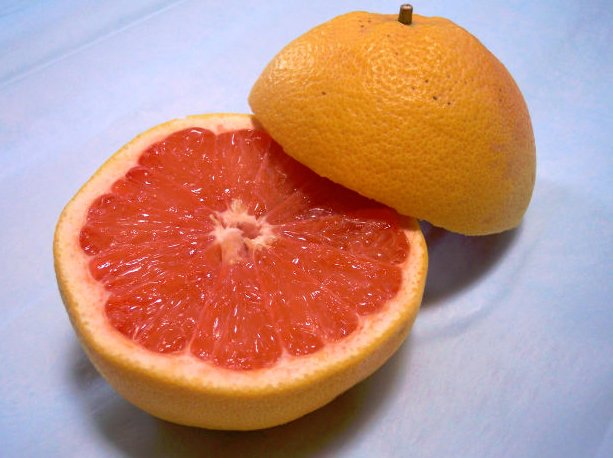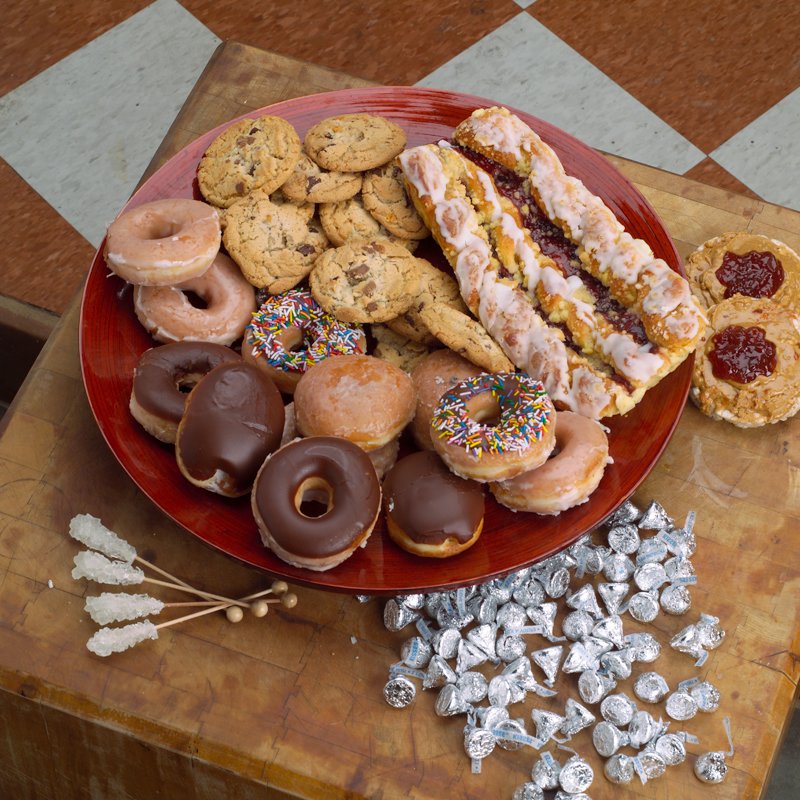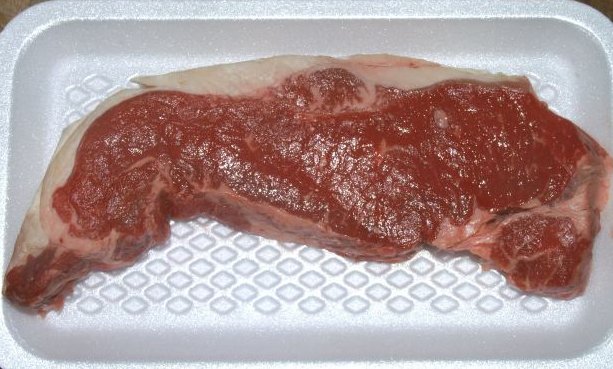Since the creation of Scivation, we have always preached the importance of following a diet. Even though we are a supplement company, we have never said that taking our supplements is more important than following a well-structured diet and that is why we have written many diet books to assist our consumers.
The first diet book released by our business was the Game Over Cut Diet, a diet created to get people into competition condition. Next, we released the Lifestyle Cut Diet, a diet created to help people gain muscle while limiting fat gain. Lastly, we released the CHA Diet, a diet that used the Game Over Cut Diet principles but was easier to follow, had a little more freedom, and could be used to either lose fat or gain muscle.
Over the past two years, the CHA Diet has been tweaked and improved based on the experiences of over 20,000 Team Scivation members. We took everything we learned from these members' feedback and compiled it into one concise diet that can be used to lose fat and gain lean muscle while still enjoying life. Introducing The Diet Solution!

The Diet Solution Basics
This diet is based upon three main principles:
- Calorie control and macronutrient manipulation
- Giving your body the nutrients it needs
- Maintaining stable insulin levels
The number one thing that dictates whether you gain or lose weight is your calorie intake. If you are eating more calories than you burn, then you will gain weight. If you are eating less calories than you burn, then you will lose weight.
Taking things a step further, the ratio of the three macronutrients; protein, fat, and carbohydrates controls whether that weight you gain/lose is muscle or fat. This new diet not only controls your caloric intake but also the ratio of protein, fat and carbohydrates to promote fat loss and lean muscle gains. In order to lose fat and gain muscle, you must give your body the nutrients it needs.
However, losing weight is not as simple as eating less calories than you burn. If you do not give your body the nutrients it needs you will feel terrible and your results will be less than stellar.
The side effects of not giving your body the nutrients it needs are fatigue, weakness, irritability, among other nasty things in addition to not having the energy to workout. Weight training and cardiovascular exercise are both vital to gaining lean muscle and losing fat. If you don't have enough energy to function in your daily life, then you certainly are not going to have energy for either one of those.
The Diet Solution focuses on giving your body the essential nutrients it needs (nutrients that must be obtained through the diet), specifically protein and essential fatty acids (EFAs).
Every meal you eat will contain a protein source like chicken or fish and a healthy fat source like nuts or avocado. Then, we add in fruits and vegetables, which give you vitamins, minerals, fiber, low GI carbs and tons of other beneficial nutrients.
Finally, we add in starchy carbs when your body needs them the most, in the morning (meal #1) or if you are working out that day, to your post-workout meal. Setting up your diet up in this manner is the key to maintaining already healthy & stable insulin levels, which allows you to gain muscle and lose fat.
There is a lot of confusion when it comes to carbohydrates. People often adopt an "all-or nothing" mindset regarding carbs and they either go on a zero carb diet or eat as many carbs as they desire. Instead of taking an extreme approach to carbs, this diet is a controlled-carbohydrate diet.

When you eat carbohydrates, your blood glucose increases and the body releases insulin from the pancreas to store the carbohydrates and bring your blood glucose levels back to normal levels. The problem for those trying to lose fat is the fact that insulin blunts the fat burning process. When insulin is secreted, the body puts fat burning on the back-burner so it can deal with the influx of carbohydrates.
Chronically high insulin levels will lead to fat storage! In order to maximize fat loss, insulin levels must be stable. This does not mean limiting insulin levels as much as possible, by not eating any carbohydrates, but rather controlling the amount and type of carbohydrates eaten.
You want to stick to "good carbohydrates" that are unprocessed, high in fiber, and low in sugar. Good carbohydrates are digested and absorbed slowly which promote already healthy blood glucose levels (normal insulin response) and conversion of food energy for the body as opposed to sugar-filled, processed carbohydrates that promote fat gain.
Examples of good carbohydrates are whole grains, oatmeal, bran, potatoes, and wheat/whole grain bread/pastas. Eating small, frequent meals composed of protein, fats, and good carbohydrates will promote stable insulin levels, fat loss, and lean muscle gains.
To optimize fat loss and lean muscle gains, you will be eating five meals a day, spaced out every three hours. All of your meals will contain a protein source and a healthy fat source. In addition to protein and fat, we will be adding fruits, vegetables, and starchy carbs (with your first or post-workout meal only).
To help you fit 5 meals into your day, you will need an MRP. MRP's contain high quality protein, healthy fats, fiber, a fruit and vegetable blend, along with digestive enzymes.
We know that everyone is busy and doesn't have time to cook and prepare five meals each day. This is why a MRP comes into play and on this plan; 1-2 of your daily meals will be in the form of a MRP.
It may sound like The Diet Solution is a strict diet, and it is, but you are allowed one meal a week where you can eat whatever tasty foods you are craving. We call this your weekly "Free Meal."
The free meal is not a cheat meal because it is built into your diet. The weekly free meal serves as both a psychological break from dieting as well as giving your body a metabolic boost. Those are the basics of our new diet; now let's go into further detail on the diet.
The Essential Macronutrients: Protein & Fat
You would be selling yourself short by not giving your body all the nutrients it needs. I am talking specifically about the nutrients that are "essential" to the body. Essential nutrients are nutrients that the body cannot make and therefore must be obtained through the diet.
Concerning the macronutrients, there are two groups of essential nutrients; essential amino acids (EAAs) and essential fatty acids (EFAs). Getting adequate protein in your diet each and every day is heavily stressed in the fitness community, but what is not stressed is getting in adequate essential fatty acids each day.
Why would you focus on only getting one of the two essential nutrients? Both EAAs (in the form of protein) and EFAs must be obtained from your diet.

Protein contains amino acids, which are the building blocks of the body. Getting adequate protein in your diet is vital to the repair and recovery of your body. In order to recover from your workouts and gain lean muscle you must obtain sufficient dietary protein—this cannot be overlooked.
Most people have a fear of dietary fat. They think that eating fat makes you fat and therefore they limit it as much as possible. Not only is this thinking wrong but it can also be detrimental to your body and results.
There are two fatty acids that are essential to the body, the omega-3 fatty acid alpha-linolenic acid (ALA) and the omega-6 fatty acid linoleic acid (LA). If your body does not get enough ALA and LA from your diet then many metabolic processes and even hormone production can suffer.
When choosing the dietary fat sources that comprise your diet, you want to choose foods that are high in ALA and LA (i.e. almonds and olive oil) and stay away from foods that are high in saturated and trans-fats (i.e. butter and bacon). While you do need some saturated fats in your diet, the majority of your fats should be unsaturated (monounsaturated and polyunsaturated fats).
To get the best results possible, daily you must focus on getting enough of both protein and essential fats in your diet. All five meals in this featured diet are based around protein and fat. We also add in fruits and vegetables to provide vitamins, minerals, fiber, and low GI carbs as well as starchy carbohydrates to promote energy and recovery when your body needs them the most.

Fruits & Vegetables
You are to have two servings of fruit every day. These fruit servings can be placed in any meals you desire. If you want to have one serving of fruit with meal #1 and another with meal #5 that is fine. If you want to have both servings of fruit with meal #3 that is perfectly fine.
The important thing is that you eat your two servings of fruit each and every day. While you can eat any type of fruit you desire, there are two fruits that have been shown to increase fat loss when combined with an insulin controlled diet: grapefruit and blueberries.
If you like grapefruit and blueberries then we highly recommend you use these two fruits for the majority of your fruit intake. If you do not like grapefruit and blueberries, or you cannot eat them for medical reasons, then you do not have to eat them.

Green vegetables are full of vitamins, minerals, fiber, and are very low GI carbs. You are allowed to eat unlimited green vegetables (i.e. broccoli and green beans) on this diet.
Why can you eat unlimited green vegetables? While green vegetables do contain calories, the benefits of eating vegetables far outweigh any calories they contain. It is theorized that it requires more calories to digest green vegetables than they contain making them a negative calorie food. Whether or not this is completely true or not, let's face it, no one has ever gotten fat from eating too much broccoli!
In addition to eating unlimited green vegetables you may also eat other non-green vegetables (i.e. mushrooms, carrots, and corn) sparingly. Try to get at least three servings of green vegetables a day. If you want more than three servings of green vegetables then eat up!
Starchy Carbohydrates
This featured diet is a controlled-carbohydrate diet, structured to maintain already stable insulin and blood sugar levels. Scientifically speaking you do not need to eat carbohydrates at all because the body can create glucose (the simplest form of carbohydrate) from amino acids as well as ketones (fatty acid byproducts) for its energy requirements.
Since the body doesn't really need dietary carbohydrates, does this mean that carbohydrates don't serve a purpose? No, eating carbohydrates is beneficial when you eat the right type of carbohydrates at specific times. Eating starchy carbohydrates (i.e. potatoes, oatmeal, and rice) provides your body with energy and helps you recover after a workout.
To put the carbohydrates to best use, you are to eat them at the times when your body can utilize them the best, first thing in the morning and/or post-workout. Upon waking, the body's insulin sensitivity is high, meaning less insulin is needed to store ingested carbohydrates. Remember, insulin blunts the fat burning process so we want to keep insulin levels controlled.
After going 6-8 hours without any food the body is ready to absorb the nutrients you give it. On the days where you are not working out, you are to have your carbohydrates first thing in the morning with meal #1.
If you are working out, then you are to have your carbohydrates post-workout and not with meal #1. The reason for this is after a workout the body is primed to absorb nutrients even more so than first thing in the morning. When you workout you burn muscle glycogen (carbohydrates stored in the muscles).

After a workout, the body wants to replenish this lost glycogen and therefore enhances its ability to metabolize carbohydrates, making post-workout the best time to eat carbohydrates.
Note that if your post-workout meal is your last meal of the day you should still eat your starchy carbohydrates. No matter what time of the day your finish your workout, even if it is right before bed, it is still the prime time to eat starchy carbohydrates.
Fiber
Dietary fiber is a type of carbohydrate but cannot be digested by the human gut nor does it provide any energy. However it has protective qualities, it helps soften the stool and encourages normal eliminations (healthy bowel movements).
Fiber rich diets also promote a feeling of fullness, which is very beneficial for those looking to drop a few excess pounds. Fiber has been linked to a reduction in many serious, sometimes life threatening, health problems.
However, extremely high dietary fiber intake (more than 40 grams per day) can also lead to some health problems including difficulties in dietary nutrient absorption. This featured diet provides beneficial fiber through fruit, vegetables, starchy carbohydrates, and our new MRP powder (which contains 3.5 grams per serving).
The Free Meal
Once a week you are allowed to eat a meal of whatever foods you are craving. We call this meal the weekly Free Meal. If you want a greasy cheeseburger and French fries then eat a greasy cheeseburger and French fries. If you want some General Tso's chicken and fried rice from your favorite Chinese restaurant then get some General Tso's chicken and fried rice.
If you want to cook up some spaghetti and meatballs then cook up some spaghetti and meatballs. While you are allowed to eat whatever you are craving this does not mean you can let loose at an all-you-can-eat-buffet and stuff yourself until you cannot move. This should be a normal sized meal like you would get at a restaurant.

The purpose of the free meal provides a psychological break from dieting and gives your body a metabolic boost. Dieting, specifically on a low-calorie diet, for an extended period of time can cause your metabolism to slow because your body senses it is not getting enough calories and it will therefore try to hang on to the calories it has, which are stored as body fat!
Body fat is stored calories and energy the body can call upon when it is needed. If the body thinks it is not getting enough calories then it will do what is needed (i.e. decrease your metabolic rate) to keep the calories (body fat) it has.
By giving your body a large influx of excess calories once a week you "trick" your body into thinking it is getting more calories than it really is, preventing a decrease in your metabolism. So when it comes time to eat your weekly free meal don't feel bad, it is actually doing your body good!
Starting Calorie Intake
Your starting caloric intake will be based off of your weight. Each of your five meals will contain the following amount of protein and fat:
| Weight | Protein Per Meal | Fat Per Meal |
| <140 lbs | 28g | 10g |
| 140-160 lbs | 35g | 15g |
| 160-180 lbs | 42g | 15g |
| 180-200 lbs | 42g | 20g |
| 200-220 lbs | 49g | 20g |
| 220+ lbs | 56g | 25g |
To this we add in your fruits, vegetables, and post-workout carbs. Remember, women get 30 grams of carbs in meal #1 or post-workout and men get 60 grams. If you are working out on a given day, then have your carbs post-workout; if you are not working out then have your carbs with meal #1.
Steps To Creating Your Meals
- Choose your protein source.
- Choose your fat source.
- Choose your carb source (First Meal or Post-Workout only).
- Add your fruit and/or vegetables.
<140 Lbs Calorie Plan
Example Food Sources
Protein:
- 4 oz of lean meat (fish, chicken, beef, turkey)
- 2 whole eggs and 1/2 of egg whites
- 1 cup of fat-free cottage cheese (max 1 meal per day)
Fats:
- 16 (20 grams) almonds
- 4 tsp (20 grams) of peanut butter
- 2 oz of avocado
- 2 tsp of olive, flax, enova, macadamia nut oil
Carbs:
- 1/2 cup (women) or 1 cup (men) of oatmeal
- 4 oz (women) or 8 oz (men) of sweet potato
- 2 slices (women) or 4 slices (men) of ezekiel bread
- 2/3 cup (women) or 1 1/3 cup (men) of brown rice
- Whole-wheat pasta
Fruits & Vegetables:
- 2 servings plus unlimited green vegetables
Example Daily Workout Day Diet
Meal 1:
- 2 whole eggs
- 1/2 cup of egg whites
- 1/2 grapefruit
- 1 cup of green peppers and mushrooms
Meal 2:
- 3 scoops of your favorite MRP
Meal 3:
- 4 oz of lean turkey
- 16 almonds
- 1/2 grapefruit
- 1 1/2 cup of green beans
Meal 4: Post-Workout
- 4 oz of chicken breast
- 2 oz of avocado
- 2/3 cup (women) or 1 1/3 cup (men) of brown rice
Meal 5:
- 3 scoops of your favorite MRP
140-160 Lbs Calorie Plan
Example Food Sources
Protein:
- 5 oz of lean meat (fish, chicken, beef, turkey)
- 3 whole eggs and 1/2 cup of egg whites
- 1 1/4 cup of fat-free cottage cheese (max 1 meal per day)
Fats:
- 24 (30 grams) almonds
- 6 tsp (30 grams) of peanut butter
- 3 oz of avocado
- 3 tsp of olive, flax, enova, macadamia nut oil
Carbs:
- 1/2 cup (women) or 1 cup (men) of oatmeal
- 4 oz (women) or 8 oz (men) of sweet potato
- 2 slices (women) or 4 slices (men) of ezekiel bread
- 2/3 cup (women) or 1 1/3 cup (men) of brown rice
- Whole-wheat pasta
Fruits & Vegetables:
- 2 servings plus unlimited green vegetables
Example Daily Workout Day Diet
Meal 1:
- 3 whole eggs
- 1/2 cup of egg whites
- 1/2 grapefruit
- 1 cup green pepper and mushrooms
Meal 2:
- 3 scoops of your favorite MRP
Meal 3:
- 5 oz of lean turkey
- 24 almonds
- 1/2 grapefruit
- 1 1/2 cup of green beans
Meal 4: Post-Workout
- 5 oz of chicken breast
- 3 oz of avocado
- 2/3 cup (women) or 1 1/3 cup (men) of brown rice
Meal 5:
- 3 scoops of your favorite MRP
160-180 Lbs Calorie Plan
Example Food Sources
Protein:
- 6 oz of lean meat (fish, chicken, beef, turkey)
- 3 whole eggs and 3/4 cup of egg whites
- 1 1/2 cup of fat-free cottage cheese (max 1 meal per day)
Fats:
- 24 (30 grams) almonds
- 6 tsp (30 grams) of peanut butter
- 3 oz of avocado
- 3 tsp of olive, flax, enova, macadamia nut oil
Carbs:
- 1/2 cup (women) or 1 cup (men) of oatmeal
- 4 oz (women) or 8 oz (men) of sweet potato
- 2 slices (women) or 4 slices (men) of ezekiel bread
- 2/3 cup (women) or 1 1/3 cup (men) of brown rice
- Whole-wheat pasta
Fruits & Vegetables:
- 2 servings plus unlimited green vegetables
Example Daily Workout Day Diet
Meal 1:
- 3 whole eggs
- 3/4 cup of egg whites
- 1/2 grapefruit
- 1 cup green pepper and mushrooms
Meal 2:
- 4 scoops of your favorite MRP
Meal 3:
- 6 oz of lean turkey
- 24 almonds
- 1/2 grapefruit
- 1 1/2 cup of green beans
Meal 4: Post-Workout
- 6 oz of chicken breast
- 3 oz of avocado
- 2/3 cup (women) or 1 1/3 cup (men) of brown rice
Meal 5:
- 4 scoops of your favorite MRP
180-200 Lbs Calorie Plan
Example Food Sources
Protein:
- 6 oz of lean meat (fish, chicken, beef, turkey)
- 4 whole eggs and 1/2 cup of egg whites
- 1 1/2 cup of fat-free cottage cheese (max 1 meal per day)
Fats:
- 32 (40 grams) almonds
- 8 tsp (40 grams) of peanut butter
- 4 oz of avocado
- 4 tsp of olive, flax, enova, macadamia nut oil
Carbs:
- 1/2 cup (women) or 1 cup (men) of oatmeal
- 4 oz (women) or 8 oz (men) of sweet potato
- 2 slices (women) or 4 slices (men) of ezekiel bread
- 2/3 cup (women) or 1 1/3 cup (men) of brown rice
- Whole-wheat pasta
Fruits & Vegetables:
- 2 servings plus unlimited green vegetables
Example Daily Workout Day Diet
Meal 1:
- 4 whole eggs
- 1/2 cup of egg whites
- 1/2 grapefruit
- 1 cup green pepper and mushrooms
Meal 2:
- 4 scoops of your favorite MRP
Meal 3:
- 6 oz of lean turkey
- 32 almonds
- 1/2 grapefruit
- 1 1/2 cup of green beans
Meal 4: Post-Workout
- 6 oz of chicken breast
- 4 oz of avocado
- 2/3 cup (women) or 1 1/3 cup (men) of brown rice
Meal 5:
- 4 scoops of your favorite MRP
200-220 Lbs Calorie Plan
Example Food Sources
Protein:
- 7 oz of lean meat (fish, chicken, beef, turkey)
- 4 whole eggs and 3/4 cup of egg whites
- 1 3/4 cup of fat-free cottage cheese (max 1 meal per day)
Fats:
- 32 (40 grams) almonds
- 8 tsp (40 grams) of peanut butter
- 4 oz of avocado
- 4 tsp of olive, flax, enova, macadamia nut oil
Carbs:
- 1/2 cup (women) or 1 cup (men) of oatmeal
- 4 oz (women) or 8 oz (men) of sweet potato
- 2 slices (women) or 4 slices (men) of ezekiel bread
- 2/3 cup (women) or 1 1/3 cup (men) of brown rice
- Whole-wheat pasta
Fruits & Vegetables:
- 2 servings plus unlimited green vegetables
Example Daily Workout Day Diet
Meal 1:
- 4 whole eggs
- 3/4 cup of egg whites
- 1/2 grapefruit
- 1 cup green pepper and mushrooms
Meal 2:
- 5 scoops of your favorite MRP
Meal 3:
- 7 oz of lean turkey
- 32 almonds
- 1/2 grapefruit
- 1 1/2 cup of green beans
Meal 4: Post-Workout
- 7 oz of chicken breast
- 4 oz of avocado
- 2/3 cup (women) or 1 1/3 cup (men) of brown rice
Meal 5:
- 5 scoops of your favorite MRP
220+ Lbs Calorie Plan
Example Food Sources
Protein:
- 8 oz of lean meat (fish, chicken, beef, turkey)
- 5 whole eggs and 3/4 cup of egg whites
- 2 cups of fat-free cottage cheese (max 1 meal per day)
Fats:
- 40 (50 grams) almonds
- 10 tsp (50 grams) of peanut butter
- 5 oz of avocado
- 5 tsp of olive, flax, enova, macadamia nut oil
Carbs:
- 1/2 cup (women) or 1 cup (men) of oatmeal
- 4 oz (women) or 8 oz (men) of sweet potato
- 2 slices (women) or 4 slices (men) of ezekiel bread
- 2/3 cup (women) or 1 1/3 cup (men) of brown rice
- Whole-wheat pasta
Fruits & Vegetables:
- 2 servings plus unlimited green vegetables
Example Daily Workout Day Diet
Meal 1:
- 5 whole eggs
- 3/4 cup of egg whites
- 1/2 grapefruit
- 1 cup green pepper and mushrooms
Meal 2:
- 5 scoops of your favorite MRP
Meal 3:
- 8 oz of lean turkey
- 40 almonds
- 1/2 grapefruit
- 1 1/2 cup of green beans
Meal 4: Post-Workout
- 8 oz of chicken breast
- 5 oz of avocado
- 2/3 cup (women) or 1 1/3 cup (men) of brown rice
Meal 5:
- 5 scoops of your favorite MRP
Making Your Diet Work For You
Setting up a meal plan that will work for your schedule is a must for a successful diet. With our diet this is simple with the use of a MRP. If you only have time for breakfast, lunch during a break at work, and a late dinner then you can still get all five of your meals in by using our MRP powder. For example, you could set your meals up as follows.
- Meal 1: 7:00 AM—solid food
- Meal 2: 10:00 AM—MRP
- Meal 3: 1:00 PM—solid food
- Meal 4: 4:00 PM—MRP
- Gym: 6:30 PM-8:00 PM
- Meal 5: 8:30 PM—solid food
Following this schedule would allow you to get all five of your meals in with a meal about every three hours, leading to balanced insulin levels and optimizing fat loss and lean muscle gains. Your diet has to work with your schedule otherwise you won't be able to stick to it.
Measuring Foods
One of the keys to this diet is calorie control. In order to control your caloric intake you have to know how much you are eating. This means you will need to measure out the foods you eat. The easiest way to measure your food is by using a food scale. You could also use measuring cups for certain foods.
An electronic food scale that weighs your foods will be the easiest and most accurate way to measure your foods. Simply turn the scale on, choose grams or ounces, and then put your food on the scale.
Measuring your food may seem like a nuisance at first, but it really only takes an extra couple of seconds. What we recommend doing is weighing all of your food for at least the first four weeks on this diet. After weighing all your food for four weeks you should have a good grasp on the portion sizes you are to eat.
If after four weeks of measuring your foods you wish to start "eye-balling" your food portions that is fine. Alternatively, if you still wish to measure out all your food then more power to you!
Fats In Meats
Something that you need to pay attention to is the fat content of the meats you are eating. For example, wild fish is much lower in fat than farm raised fish (especially when it comes to salmon). Wild fish also has more of the good omega-3 fatty acids than farm-raised fish.
When choosing the ground beef you buy you want to pick the beef with the lowest amount of fat in it. A 70% lean beef contains 5 grams of fat per ounce while a 96% lean beef contains only 1 gram of fat per ounce. The grams of fat and calories add up quickly if you are eating fatty beef, so pay attention to the percent leanness of the beef you eat.

An easy way to pick out lean steaks is to pick steaks with as little marbling (the white stuff running throughout the steak) as possible. The marbling in steak is fat and while it may make the steak tender and tasty it is full of unwanted saturated fat and calories.
Skinless chicken breasts are the leanest form of chicken you can buy. Chicken wings and legs contain more fat than the chicken breasts, so stay away from those. Any time you buy or eat meats you want to choose the leanest option available, so it is important to know what to look for:
- Wild caught fish instead of farm raised fish
- A high leanness/low fat percentage
- A low amount of marbling in steak
- Boneless, skinless chicken breasts
Herbs, Spices, And Low-Calorie Condiments
Eating plain chicken breast can get old quick. If you don't enjoy eating the food in your diet then you are less likely to stick to your diet.
One way to add flavor to your foods without adding calories is by using herbs and spices. Since herbs and spices don't contain any significant calories you can use them as you desire to add flavor to your foods.
You may also use low-calorie condiments like mustard, hot sauce, Heinz "One-Carb" ketchup, Walden Farms products, salsa, and any other low-calorie condiment you like. Stay away from sugar based condiments like BBQ sauce.
Low-Calorie Beverages
You are allowed to drink low-calorie beverages like diet soda, black coffee (can use Splenda to sweeten), unsweetened tea, and Crystal Light on this diet. Drinking low-calorie beverages is one way to keep you satiated and prevent you from cheating on your diet.

Beware Of What You Might Be Currently Drinking
Would you purposely take a "Corn Syrup Solids" capsule? How about a nice fructose and maltodextrin shake to kick start the lean mass gain and fat loss process? Unfortunately, this is what many people unknowingly do. We drink our meal replacement powder (MRP) and assume that it is for the best, but in reality, it could be doing more harm than good.
With fat promoting maltodextrin and other cheap, filler carbohydrates, we are left with subpar results, a flabby waist and even worse. These cheap but tasty ingredients can also lead to other bad health issues. What kind of "health" supplement is this?
Eating At Restaurants
It is possible to eat healthy eat restaurants, but it is going to take some effort on your part. When choosing what to order you want to stay away from breaded and fried foods. Instead of getting the chicken fingers choose the grilled chicken breast.
When you put in your order request your food is not cooked in butter. Most restaurants cook foods like vegetables and steak in butter, which adds unwanted fat and calories. It is always best to play it safe when in doubt and ask for your food without butter.
One thing you need to pay close attention to is salads. Most salads at restaurants are loaded with cheese, bacon, and creamy dressing that have tons of calories in them.
If you do choose to order a salad choose lower calorie options like grilled chicken instead of fried/breaded chicken and choose a low-fat salad dressing or olive oil and vinegar instead of a full-fat, high calorie, cream based dressing.
Alcohol
This may come as a shock to some people but alcohol contains calories and these calories can add up quick! Drinking adds empty calories to your diet and you want to limit your consumption of alcohol while on this diet if you want to get the best results possible.
If you are going to drink you want to choose lower calorie drinks using tonic water or diet soda instead of sugary drinks and light beers instead of regular beers.

Do Not Stress Over Minor Things
People have the tendency to overanalyze and stress about their diet. This diet is setup so you don't have to overanalyze and stress over it. The basics of each meal are simple; eat lean protein and good fats every 3 hours. If for some reason you have to wait 3.5 hours or even 5 hours after a meal to eat your next meal do not stress! Eat your meal and then get back on schedule.
If you are supposed to eat 6 oz. of lean meat for your protein and you only have a 5 oz. chicken breast cooked do not stress! Being shy one ounce of protein here and there is not going to harm your progress.
If something comes up and you have to cut your post workout cardio session short, do not stress! Simply do more cardio the next day or two to make up for it. Stressing over the little details is doing you more harm than good.

Dieting is hard enough as is without you putting undue stress upon yourself. Focus on the big picture and overall guidelines of this diet instead of getting bogged down with minute details.
Weight Training And Cardio
While there is no specific weight training or cardio program listing in this book we recommend you weight train and do cardio at least three times a week.
Workout Nutrition—Scivation Xtend: We have talked all about your diet and now we will talk about your workout nutrition, specifically what you drink during your workout. We recommend drinking a BCAA based drink during each and every workout. This product contains branched-chain-amino acids (BCAA), glutamine, and citrulline malate and was formulated to give the body what it needs during exercise.
As you exercise, the body increases the demand for various nutrients and if the body is not fed those nutrients, it must obtain them from other sources (i.e. breakdown of muscle to obtain amino acids). Both BCAA and glutamine oxidation/demand is increased during exercise. In order to meet this increased demand for BCAA and glutamine, the body breaks down muscle protein, something we don't want to happen.
The goal of weight training is to increase protein synthesis. In order to gain lean muscle, protein turnover (protein turnover = protein synthesis - protein breakdown) must be positive. An increase in protein synthesis from weight training can lead to an increase in muscle mass.
If we are increasing protein breakdown during training, we are decreasing the training session's overall anabolic (muscle building) effect and limiting muscle growth. BCAA supplementation has been shown to not only increase protein synthesis, but also to decrease protein breakdown.

By supplementing with Xtend during your workouts you are creating an ideal environment for lean muscle growth by giving it the BCAA and glutamine it needs. In addition, the citrulline malate found in this product increases energy production, delays fatigue, and increases blood flow and amino acid deliver to muscle promoting enhanced recovery.
Drinking this BCAA/glutamine cocktail during your workout will enhance recovery, reduce fatigue, decrease muscle soreness, and increase your overall results.
Acceptable Food List
In the above diet outlines we listed only a small portion of the foods that are acceptable on The Diet Solution. Below are additional foods that fit into The Diet Solution's guidelines.
Breads
- Bagel (whole-wheat, oat-bran, 9-grain, 3.5 inch): 1/2 or 42g
- Bread (whole-wheat, oat-bran, 9-grain): 1 slice or 32g
- Whole-wheat English muffin: 1/2 or 33g
- Whole-wheat pita bread (6.5 inch in diameter): 1/2 or 32g
- Whole-wheat tortilla, 6 inches across: 1 or 35g
Cereals & Grains
- Barley (pearled, dry): 1.25 tbsp or 15.6g
- Kashi Medley: 1/3 cup or 19.8g
- Cream of Wheat regular or quick (dry): 1.5 tbsp or 16.7g
- Granola, low-fat (Heartland brand): 2.5 tbsp or 16.5g
- Grape-Nuts (Post brand): 2.5 tbsp or 16.5g
- Honey: 3/4 tbsp or 15.8g
- Millet (dry): 1.5 tbsp or 18.75g
- Oat Bran (dry): 3.5 tbsp or 20.5g
- Oatmeal (Quaker Instant/Old Fashion, dry): 1/4 cup or 20g
- Pasta, wheat (noodles, bowtie, shells etc), cooked: 1/3 cup or 46g
- Quinoa Grain (dry): 1.75 tbsp or 18.6g
- Rice, brown long-grain (cooked): 1/3 cup or 64.35g
- Rolled Oats: 1/4 cup or 20.25g
- Steel Cut Oats, dry: 1/8 cup or 20g
Starchy Vegetables
- Baked potato (no skin): 63.8g or 2.25 oz
- Baked Sweet potato (baked no skin): 56.7g or 2 oz
- Yams (baked, no skin): 56.7g or 2 oz
Dried Beans & Lentils
- Black Beans (S&W - canned): 106g or 3.75 oz
- Red Kidney, Pinto Beans (Green Giant - canned): 85g or 3 oz
Fruits
- Apple, (with peel): 3.25 oz or 92g
- Banana, (peeled): 2.25 oz or 64g
- Blueberries (fresh): 3.5 oz or 99g
- Grapefruit, (peeled): 6.5 oz or 184g
- Grapes: 3 oz or 85g
- Mango (fresh): 3 oz or 85g
- Orange, (peeled): 3.5 oz or 99g
- Pineapple: 4 oz or 113g
- Peach (fresh): 4.55 oz or 127.5g
- Pear (fresh): 3 oz or 85g
- Papaya (fresh): 5 oz or 141.75g
- Raisins (seedless): 2 tbsp or 18.5g
- Strawberries (fresh): 6.5 oz or 184g
- Watermelon (fresh): 5 oz or 141.75g
Vegetables (Raw Or Steamed)
- Asparagus: 4 oz or 113 g
- Broccoli: 2.75oz or 78g or 1/2 cup
- Cauliflower: 2.75oz or 78g or 1/2 cup
- Green Beans: 2.2oz or 62.5g or 1/2 cup
- Onions: 53g or 1.86 oz or 1/3 cup
- Spinach: 125g or 4.4oz or 2/3 cup
- Celery: 120g or 4.25 oz or 1 cup
- Cucumber: 156g or 5.5 oz or 1/3 cup
- Green onions: 50g or 1.75 oz or 1/2 cup
- Mushrooms: 78g or 2.5 oz or 1/2 cup
- Tomato: 90g or 3.2 oz or 1/2 cup
- Salad greens (lettuce, romaine): 165g or 5.2 oz or 3 cups
Dairy
- Skim milk (0 grams fat): 1 cup or 8 fl oz
- 1% Milk: 1 cup or 8 fl oz
- Plain non-fat yogurt: 3/4 cup or 6 oz
- Yoplait/Dannon Light Fruit yogurt: 6 oz (1 container)
- 2% milk: 1 cup or 8 oz
- Whole milk: 1 cup or 8 oz
Very Lean Meat
- Chicken breast (white meat) boneless/skinless: 1 oz or 28.35g
- Turkey breast (LEAN): 1 oz or 28.35g
- Fresh fish (cod, haddock, halibut, tuna, tilapia): 1 oz or 28.35g
- Shell fish (crab, lobster, shrimp): 1.25 oz or 35.5g
- egg whites: 2 or 67g
- Non-fat cottage cheese: 1/4 cup or 2 oz or 57 g
- Wild Salmon Fillet: 1 oz or 28.35g
- Lean Sirloin: 3/4 oz or 21.25g
- Egg (including yolk): 1 or 50g (also counts as 5 grams of fat)
- Cheese 2% (Reduced Fat): 1 oz or 28.35g (also counts as 5 grams of fat)
Monounsaturated Fats & Polyunsaturated Fats
- Avocado: 1 oz or 28.35g
- Almonds (dry roasted): 1/3 oz (~8 pieces) or 1 tbsp or 8.6g
- Cashews: 1/3 oz or 1 tbsp or 9.65g
- Flax oil: 1 Tsp or 4.5g
- Mayonnaise (Light, reduced-fat): 1 Tbsp or 15g
- Olive oil: 1 tsp or 4.5g or 0.16 oz
- Peanuts: 1/3 oz or 9.36g
- Peanut butter (smooth or crunchy): 2 tsp or 0.38 oz or 10.6g
- Pecans: 1/4 oz or 1 tbsp or 7.44g
- Salad dressing (Light, reduced-fat): 2 Tbsp or 30g
- Sesame seeds: 1 Tbsp or 1/3 oz or 9.4g
- Sunflower seeds: 1 Tbsp or 1/3 oz or 9.0g
- Walnuts: 1 Tbsp or 1/4 oz or 7.5g
Free Food List
- Less than 20 calories per serving
- Less than 5 gram carbohydrates per serving
- Recommended at 1 serving per meal MAX per day
Fat Free Or Reduced Fat
- Cream cheese: 1 Tbsp
- Mayonnaise, fat-free: 1 Tbsp
- Margarine, fat-free: 4 Tbsp
- Miracle Whip, non-fat: 1 Tbsp
- Salad dressing, fat-free: 1 Tbsp
- Sour cream, fat-free: 2 Tbsp
Sugar Free or Low Sugar
- Hard candy, sugar free: 1 piece
- Gelatin dessert, sugar free: 1
- Gum, sugar free: 1 piece
- Jam or jelly. Low sugar or light: 2 tsp
- Syrup, sugar free: 2 Tbsp
Drinks
- Coffee
- Club soda
- Diet soft drinks, sugar free
- Tea
- Tonic water
Sugar Substitutes
- Equal (aspartame)
- Splenda (sucralose)
- Sprinkle Sweet (saccharin)
- Sweet One (acesulfame potassium)
- Sweet 'n Low (saccharin)
Wrap-Up
This exciting new diet is based upon calorie control and macronutrient manipulation, giving your body the nutrients it needs, and maintaining stable insulin levels.
It took all three of these principles and created meal plans to give you the best results possible while still being easy to follow.
This diet can be implemented by everyone to help them achieve their goals. Following this diet will lead to a leaner, stronger, more energetic, and healthy you. So what are you waiting for? Start implementing it today!
